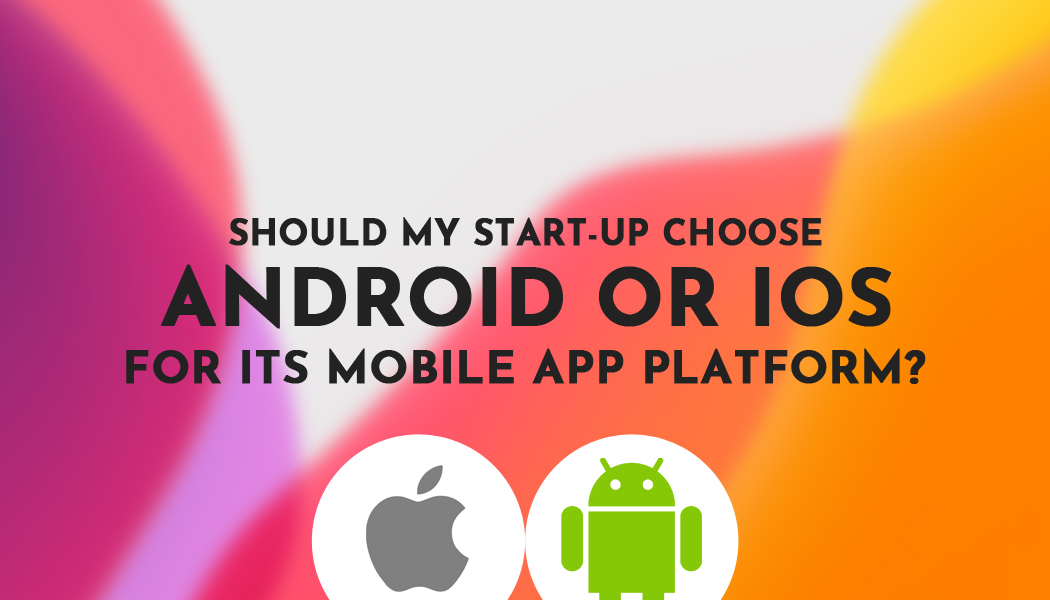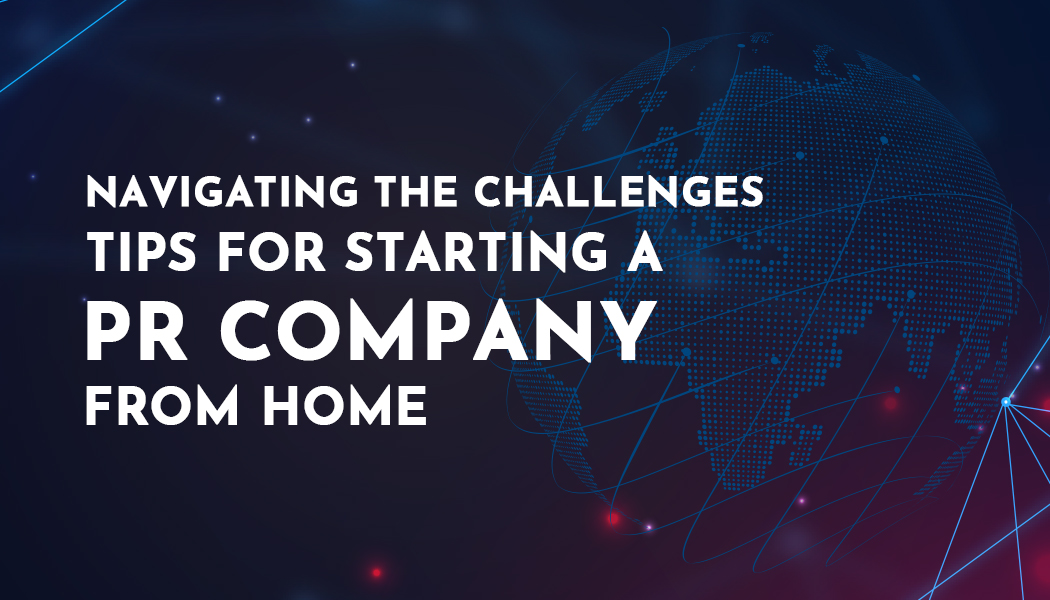Should My Start-Up Choose Android or iOS (or both) for its Mobile App Platform?
If you launched a business in the past three years, you would certainly consider your organization a ‘start-up’. In this article, we will discuss the suitability of mobile applications to generate revenue for your start-up and, if you are considering such a product launch, which application platform you should choose when considering iOS from Apple vs. Android OS.
But, before we dive into that discussion, let’s take a moment to get an overview of the start-up environment. You might be interested to know that there are approximately 300 million start-up businesses launched every year, and that there are more than 450 million entrepreneurs in business today around the world. Of those start-up businesses, approximately 1.35 million are tech startups. Of all global start-up businesses focused on technology, 13.5% are in Silicon Valley and San Francisco in the U.S. One last statistic before we move into the mobile app product and application discussion: Only 50% of start-up businesses with employees will survive five (5) years.
None of these statistics are meant to discourage the start-up business or its managers but, rather, to position the discussion appropriately to consider the benefits, value and factors for mobile application success.
Whether your start-up business is tech-based and offers software and mobile apps or your business is in another industry like media, entertainment, finance, retail, manufacturing, production, infrastructure or any other business focus, you may be considering the value and increased revenue and client satisfaction you will achieve if you launch a mobile application to provide services or products to your clients.
According to Data Reportal there were 5.11 billion unique mobile users in the world as of 2019 and that number is growing every day. 2.71 billion of them use smart phones. By some accounts, 57% of users will not recommend a business with a poorly designed mobile site, the average user will tap, swipe, and click their phone 2,617 times a day and 47% of US smart phone users say they couldn’t live without their devices.
Roughly 85% of the smart phone user market belongs to Android models, while iPhone users make up the remaining 15%. But, that isn’t a static number and it does not include iPad users or other mobile devices like smart watches and wearables, so it would be a risky choice to create a mobile app that only runs on Android devices (AKA a native app)!
When your business considers the appropriate platform for its mobile application you will, of course, want to consider how many consumers or business users prefer or use a particular type of device, but that can’t be your only consideration. While Android has the numbers, Apple is gaining in popularity and releasing new, popular features and developer tools all the time. So, before you make a quick decision, think about the factors that will impact your success.
Target Audience
If your target market is consumers, the Android platform definitely has more users. It is user-friendly and popular and the devices may be more cost-conscious for a certain demographic. Having said that, you will also want to consider whether your mobile app will target business users and, if so, whether the type of business you target might require that their users carry and use a device owned by the business. If so, is your business target a larger company that might use Apple devices or a smaller business that might use Androids? In other words, know your demographic. Is the business likely to support the Bring Your Own Device (BYOD) approach? If so, you’ll want to think about a cross-platform approach.
Features and Functionality
Apple is always adding new features and functionality and innovative developers are using this foundation to create new, exciting applications. Both the Android and the iOS platform will provide enough features and function to attract customers but, when it comes to choosing between the two platforms, the business should look at the requirements for the mobile application and where its focus is, what support it will need in the way of features and performance, scalability, etc., and make a decision to develop a native Android or native Apple mobile application or to choose a hybrid mobile application approach that will be compatible with both.
Developer Community
Android offers an open-source platform, which is appealing to many developers and may provide a larger developer pool from which to draw. While there are some barriers to entry in getting an app tested and approved in the Apple App Store, there is also a benefit to considering the long view. If you have a great idea and you just want to get it out into the market, you may be satisfied with an Android approach but a cross-platform approach may provide more of a strategic advantage in the long term.
Market Trends
Apple is making it more enticing for developers to jump on the bandwagon with new features and functionality and new devices that provide a sandbox for the most innovative developers and mobile app ideas. While Android has the bulk of the market, that gap will begin to close as Apple provides crucial functionality and features in areas of concern like security and privacy, new and complex features to support new business ideas, etc. Creating a one-code-fits-all approach that will accommodate iPhone and Android devices will allow a business to address customers of both operating systems as the market changes.
Cost(s)
Android development takes time and time equals money. This additional investment of time might not translate well when it comes to revenue, because Android apps do not generally reap the same benefits in revenue as an iOS app. BUT, the cost to develop a cross-platform app that accommodates Android and iPhone is well worth consideration for many businesses because it addresses the need for an app to function across both platforms and will thus be easier for most businesses to adopt.
Time to Market
While an Android mobile app may be faster and easier to develop, the business should also consider how often it wants to release upgrades and updates and how much churn and change it expects from the app it conceives. One can enter the market quickly and upgrade quickly, with plenty of Android users in the market, so if speed is a concern, this approach may be a good one. But, time to market must also be balanced with where the market is going and a start-up business does not want to carve out access just for a certain user base, or it may find itself limited in market expansion.
Upgrades and Future Considerations
Android offers ease of upgrade and will allow the business to make changes quickly to manage market and customer changes. As a start-up, you may not be looking out as far as upgrades, but engaging a development team and choosing a platform that will allow you to easily upgrade must include an approach for upgrade, support and future market changes. If a start-up wants to allow for a broader horizon, it may make sense to choose a single code, cross-platform approach so that any and all upgrades will address the needs of both the Android and the Apple environment.
Security and Privacy
Look carefully at your needs for security and privacy. If your app is going to satisfy a need in an industry that has highly secured data, or in a sensitive area like financial services, healthcare or any of the other industries with very sensitive data, you will want to go with a platform and an expert developer that will satisfy statutory, industry or government regulations and look to the future to anticipate the continued stressors involved in the area of malware, hacking and ransomware. Apple has made a very public commitment to customer security and is constantly upgrading its data security components.
No matter the needs of your start-up enterprise, your best approach is to develop a clear picture of your requirements and let those requirements lead you to your choice. For some, the cross-platform approach will provide the best coverage, for others, choosing Android or iPhone environs may be suitable for the largest percentage of the demographic and customer base the business plans to address.
Whether you decide on an iPhone mobile app or an Android mobile application, or you have decided to use a cross-platform mobile application, hybrid mobile app development approach, you will need a trusted IT consulting partner to help you conceive and develop your mobile application and improve results for your start-up organization.




